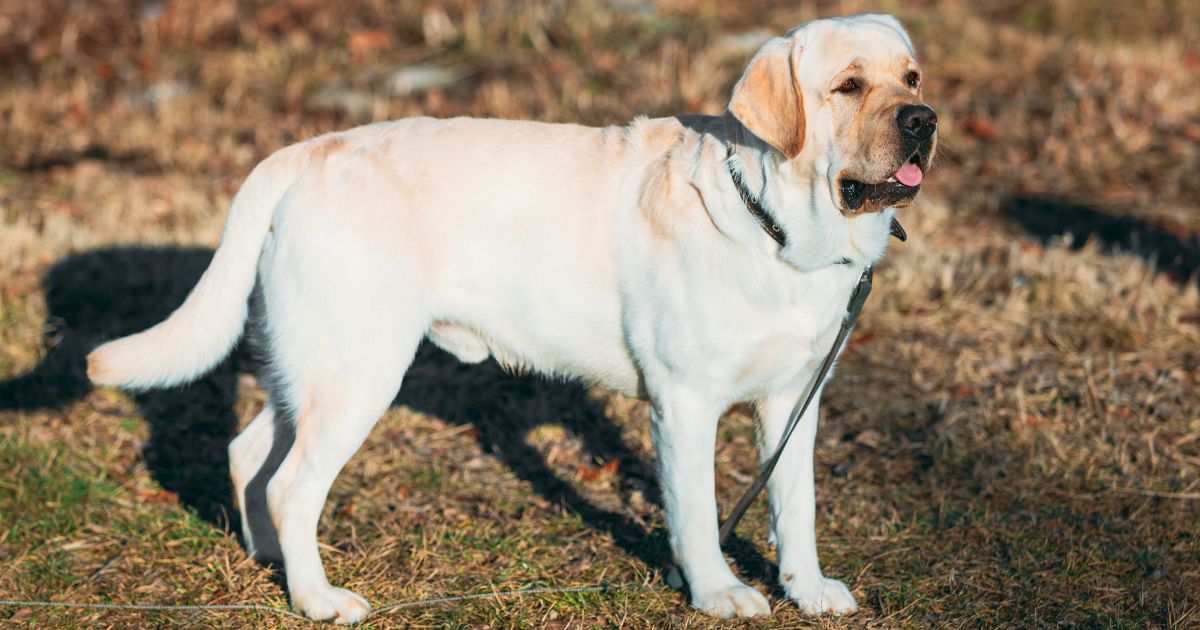
English Labradors, also referred to as English Labrador Retrievers, are a popular dog breed with roots in the United Kingdom. These medium to large sporting dogs are adored for their friendly and devoted nature, making them a sought-after choice for families and individuals. Although there is no official distinction between English Labs and American Labs, some breeders and enthusiasts believe there are subtle differences in appearance and temperament. English Labs are said to have a wider, more blocky head and a thicker coat compared to their American counterparts. They are often bred for show purposes rather than for hunting, but many still possess the strong retrieving instincts the breed is known for. Whether you are thinking about welcoming an English Lab into your home or simply want to discover more about this delightful breed, it is clear that they are a truly exceptional and distinctive type of dog. With their loving personalities, abundant energy, and unwavering loyalty, English Labs have captured the hearts of countless dog enthusiasts worldwide, and it’s not difficult to understand why they hold such appeal.
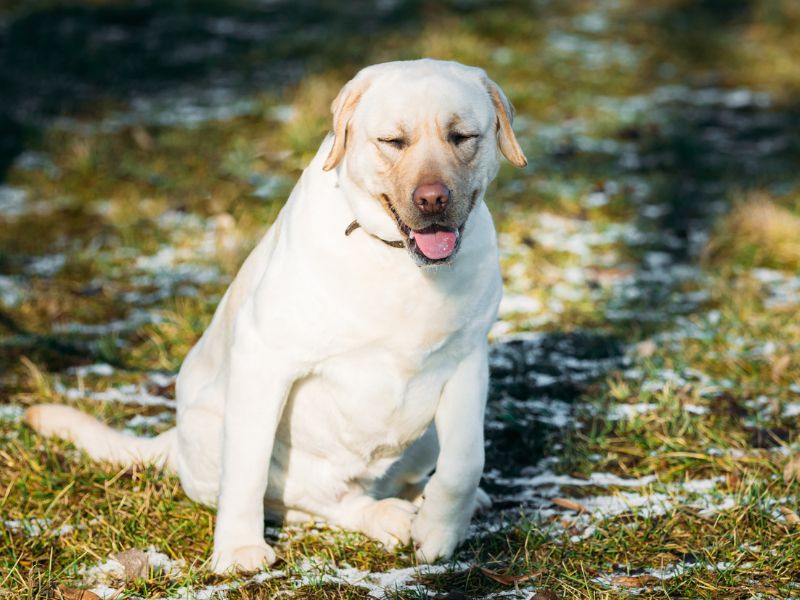
English Labs are called so because they are the subtype of Labrador Retrievers that were developed and bred in England. They are known for their stockier build, calmer temperament, and slightly different appearance compared to American Labs. The term “English” in their name simply refers to their origin and the country where they were first developed as a breed.
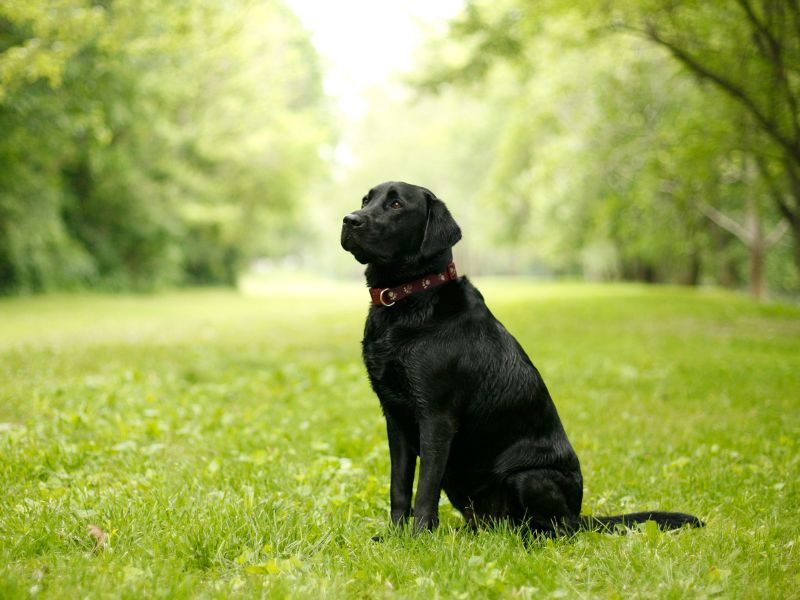
English Labs, also known as Show or Bench Labradors in England, were originally bred in England to meet a certain standard for dog shows. They have a broader head, shorter legs, and a stockier build compared to their American counterparts. English Labs are known for their calm and laid-back temperament, making them great family pets. Despite their name, English Labs originated in Newfoundland, Canada, where they were used for retrieving fish and game. The breed was later brought to England and further developed. English Labs are popular for their friendly and loyal personalities, and they are often used as therapy dogs and service dogs. Their appearance is unique, with distinctive physical characteristics that set them apart from other Labrador Retrievers.
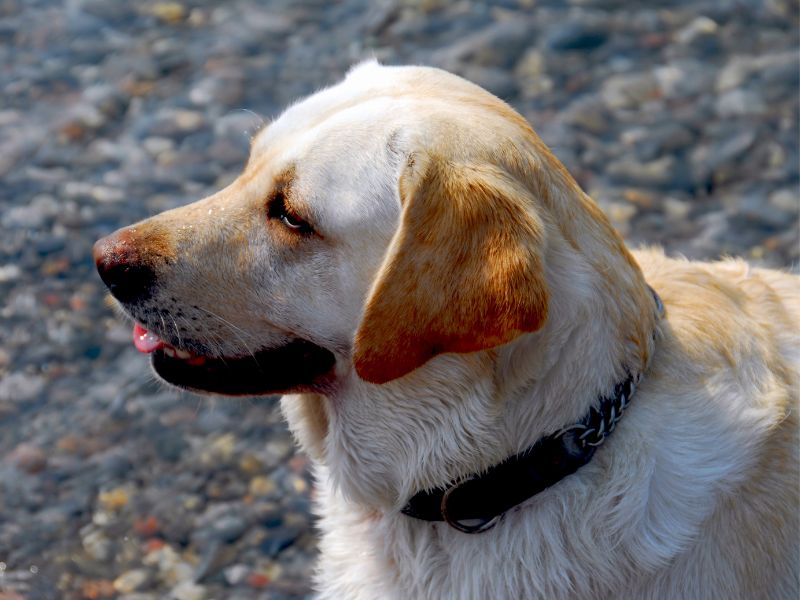
The English Lab is known for its distinctive features, such as its broad skull and powerful jaw. Their medium-sized eyes are set apart and convey a friendly expression. With medium-sized ears that hang close to their head, English Labs have a sturdy, athletic build, with a deep chest and muscular back. Their legs are strong and straight, and they have round, compact feet. One of the most recognizable features of the English Lab is its “otter” tail, thick at the base and tapering to a point. Despite common misconceptions, English Labs are not shorter than American Labs. Both breeds technically belong to the same breed, with English Labs bred for show and American Labs bred for work. While English Labs have a stockier build, American Labs are leaner. The English Lab’s coat is short, dense, and water-repellent, coming in black, yellow, or chocolate. The coat is easy to maintain and sheds moderately throughout the year, with heavier shedding in the spring and fall. English Labs are medium-large breeds, with males standing between 22.5 and 24.5 inches in height and weighing 70 to 80 pounds, while females stand between 21.5 and 23.5 inches and weigh 55 to 70 pounds. For expert training advice on your English Lab, consider Pippa Mattinson’s tips. With over 30 years of experience working with Labrador Retrievers, Pippa offers valuable guidance on training techniques. Her free training guides cover everything from basic obedience to advanced skills, emphasizing positive reinforcement, consistent commands, and varied practice environments to build your dog’s confidence. By following Pippa’s tips, you can nurture a well-behaved, obedient English Lab and strengthen your bond with your furry companion. Sign up for her training tips today and embark on a journey to a harmonious relationship with your pet.
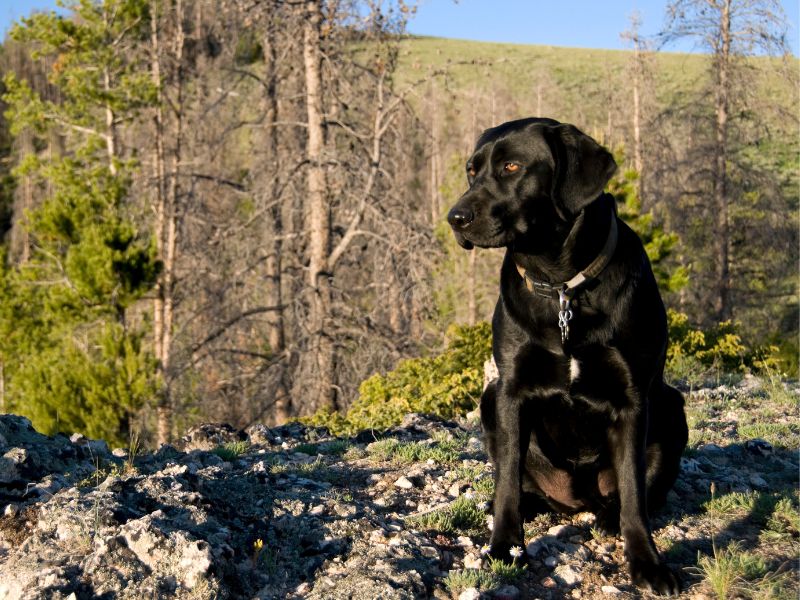
English Labrador Retrievers are beloved for their amicable and cheerful disposition. These dogs are gentle and eager to please their owners, forming strong bonds with both people and other animals with proper training and socialization. Compared to field type Labs, English Labs are generally more mellow and suited for families seeking a semi-active pet. They have slightly lower energy levels, which makes them well-suited for homes with children or seniors. Nonetheless, they still require regular exercise and mental stimulation for their well-being. Known for their intelligence, English Labs are quick learners and respond well to positive reinforcement during training. They are particularly good with children, making them an ideal choice for families with young kids. Overall, the English Labrador Retriever is a loyal and friendly companion that adapts easily to different living situations. They can thrive in apartments as well as houses with yards when provided with training and socialization. When comparing English Labradors with American Labradors, one can see noticeable differences in their appearance. English Lab puppies tend to have a bulkier build with shorter legs and bigger heads, while American Lab puppies are more slender and athletic-looking. Additionally, English Labs are known for their calm temperament, whereas American Labs are typically more energetic and active. As English Labradors mature, they become even more affectionate and devoted to their families. Their medium to large size, manageable coat, intelligence, and trainability make them an excellent choice for households seeking a friendly and low-maintenance pet. English Labradors come in three main coat colors: black, yellow, and chocolate. Their short, dense, water-repellent double coat is easy to maintain with regular brushing, keeping it healthy and shiny. Families looking for a charming, intelligent, and easygoing pet may find the English Labrador Retriever to be a perfect fit for their home.
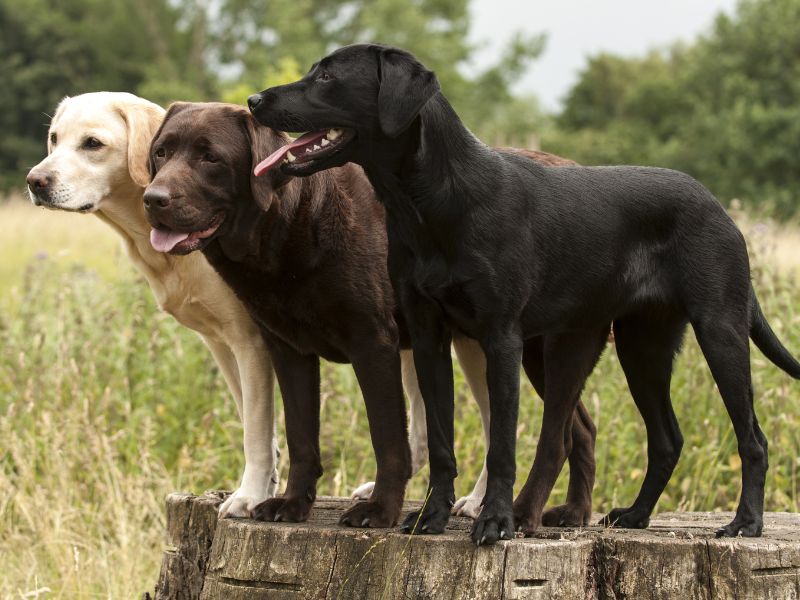
English Labs, also known as Labrador Retrievers, come in various colors such as black, yellow, and chocolate. The color of their coat is determined by two genes – one controlling the color (black or brown) and the other providing dominance (black over brown). Yellow Labs can range from creamy white to intensively red, while chocolate Labs range from light to dark brown. Some breeders may advertise “silver” Labs, but it is important to note that silver is not a recognized color in the breed standard by organizations like the American Kennel Club (AKC) or the United Kennel Club (UKC). The “silver” color is actually a diluted form of the chocolate color due to a gene mutation, but breeding for this color is discouraged. In terms of grooming, English Labs have a short, dense coat that requires regular maintenance such as baths every 2-3 months, brushing twice or thrice a week, nail trimming every 4-6 weeks, and ear cleaning weekly. Proper grooming not only enhances their appearance but also contributes to their overall health and well-being. While there may be slight differences in appearance and temperament between English and American Labs, both types should still meet the breed standard. English Labs are often stockier and calmer, making them slightly easier to train, but both types are known for their friendly nature, intelligence, and eagerness to please. With proper training and socialization, both English and American Labs can excel in various canine sports and activities.
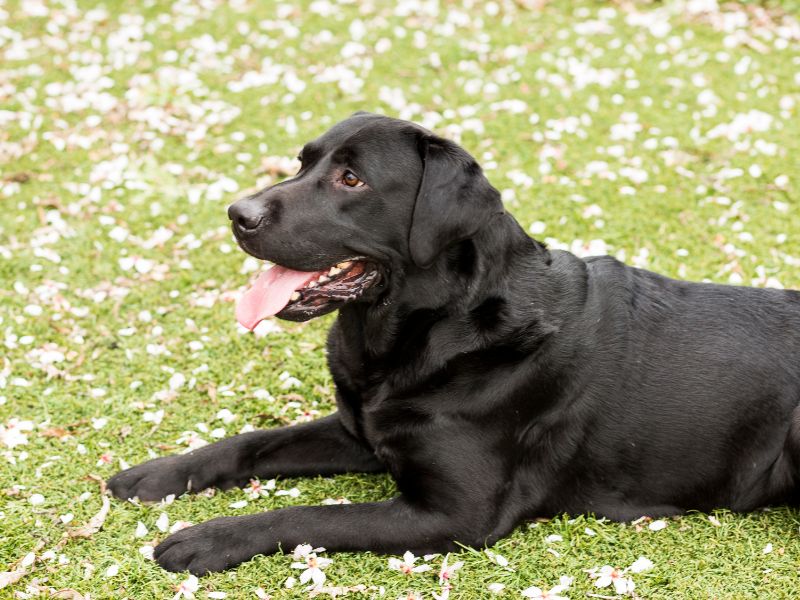
English Labs, like all dog breeds, are susceptible to certain health issues that can be mitigated by selecting puppies from health-tested parents. Common health problems for English Labs include joint issues such as hip or elbow dysplasia, obesity that can lead to various health complications, allergies causing skin irritation, epilepsy resulting in seizures but manageable with medications. While these issues are prevalent in English Labs, they are not inevitable with proper care and attention. To ensure the well-being of your English Lab, provide a balanced diet with high-quality protein, healthy fats, fruits, and vegetables. Regular exercise is also essential to maintain a healthy weight and prevent joint problems. Regular visits to the vet for check-ups and screenings are crucial for early detection and treatment of health issues. Obesity is a common concern for English Labs, with around 60% being overweight or obese. This can lead to joint problems, heart disease, and a shorter lifespan. Monitoring your dog’s weight and adjusting their diet and exercise routine can help in managing obesity. Training English Labs is vital, given their intelligence and eagerness to please. Consistency and patience in teaching basic obedience commands, crate training, and regular exercise are essential for a well-behaved companion. Engaging in activities like obedience and agility training can provide mental stimulation for your dog. In conclusion, with proper care, training, and attention to their health, an English Lab can make a wonderful and obedient companion for the right owner.
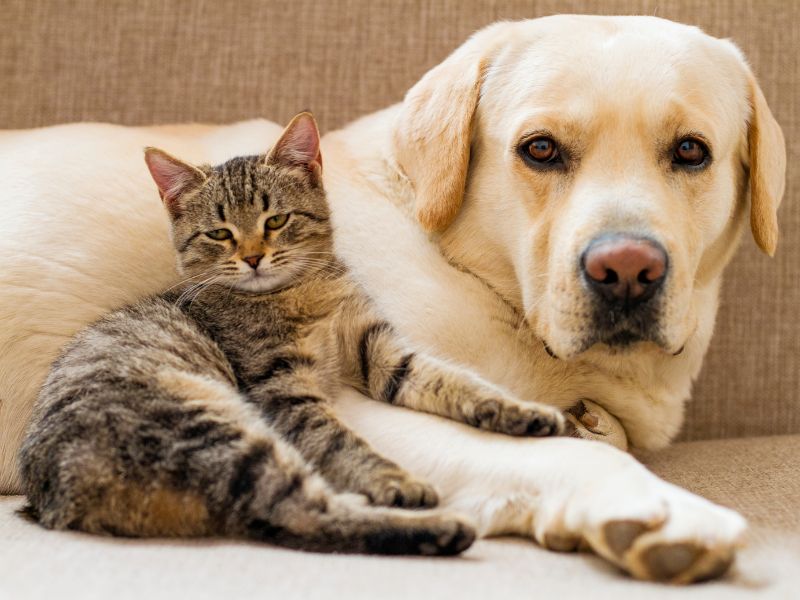
English Labs have a reputation for being friendly and sociable, making them a popular choice for families and pet owners. Their trainability and desire to please make them ideal for those who are new to owning a dog. However, it’s crucial to assess your household’s needs and lifestyle before bringing one into your home. These dogs are known for their high energy levels, requiring plenty of exercise and mental stimulation to keep them happy. If you live in a small space without access to a yard or park, an English Lab may not be the best fit. Similarly, if you have a hectic schedule that doesn’t allow for daily walks and playtime, you may want to consider another breed. Regular grooming is also essential for English Labs due to their thick coats. If you’re not ready to dedicate time to grooming or can’t afford professional services, this breed might not be the best choice for you. With proper care and attention, however, an English Lab can be a cherished addition to any home. When looking for a breeder, it’s important to find one that prioritizes the health and well-being of their dogs. Great English Labrador Puppy Home and Sanglier Chocolate Labradors are two reputable options known for producing healthy and well-tempered puppies. Researching breeders thoroughly and asking questions is crucial before making a decision. Despite the popularity of English Labs, it’s essential to consider your lifestyle and capabilities before bringing one home. With the right care and attention, these dogs can thrive and bring joy to your household for years to come.

Just like any other breed out there, the future of English Labs is uncertain. However, there are some interesting trends that give us a glimpse of where the breed might be headed in the next few years. One of these trends is the growing popularity of English Labs in the United States. Although they are more commonly found in the UK, American pet owners are also showing a keen interest in them. This could lead to more breeders focusing on producing English Labs, resulting in a larger population of the breed in the US. Another trend to take note of is the increasing emphasis on health testing in breeding programs. With more awareness about the health issues that can affect Labs, such as hip dysplasia and eye problems, pet owners are now more inclined to seek out breeders who conduct health tests on their dogs. This could potentially reduce the occurrence of these health problems within the breed. Lastly, the role of the English Lab may continue to evolve. While they were originally bred as hunting dogs, they have now become a popular choice for families. As more families look for dogs that are great with kids and other pets, breeders may focus on producing English Labs with a relaxed and friendly temperament.




